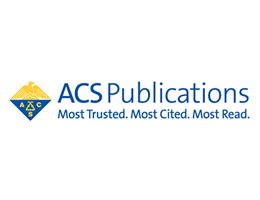FOR IMMEDIATE RELEASE
ACS News Service Weekly PressPac: March 09, 2022
Recent advances in long-COVID research
Some people who contract COVID-19 suffer from lingering symptoms, such as loss of smell or brain fog, weeks or months after recovery. Below are some recent papers published in ACS journals that report research and hypotheses on the causes of and potential treatments for long-COVID. Reporters can request free access to these papers by emailing newsroom@acs.org.
“Pathways and Pathogenesis of Hearing Deficits, Tinnitus, and Vertigo in COVID-19”
ACS Chemical Neuroscience
Nov. 15, 2021
COVID-19 affects multiple organs of the body, including the ears, with hearing loss, tinnitus and vertigo reported by some patients that can persist for months after a SARS-CoV-2 diagnosis. This viewpoint article discusses how the virus could cause an inflammatory response or direct damage in ear tissues, leading to temporary or permanent hearing- and equilibrium-related symptoms.
“Mechanism of Anosmia Caused by Symptoms of COVID-19 and Emerging Treatments”
ACS Chemical Neuroscience
Oct. 5, 2021
Although most people who experience anosmia –– or loss of smell — with COVID-19 have partial or full recovery within a short period, some report long-term anosmia of more than 30 days. This review describes ways the SARS-CoV-2 virus might cause olfactory dysfunction, as well as possible treatments for long-term anosmia, including smelling exercises, corticosteroids and tissue engineering.
“Incomplete Systemic Recovery and Metabolic Phenoreversion in Post-Acute-Phase Nonhospitalized COVID-19 Patients: Implications for Assessment of Post-Acute COVID-19 Syndrome”
Journal of Proteome Research
May 19, 2021
Because tens of millions of people are likely to be affected by post-acute COVID-19 syndrome (PACS, or long-COVID), it’s important to find metabolic markers of the disorder to prepare for future medical and economic burdens, the researchers say. They used metabolic phenotyping of blood from non-hospitalized patients 3 months after SARS-CoV-2 infection to show that, although most metabolites returned to normal levels after COVID-19 recovery, some (such as plasma taurine and the glutamine/glutamate ratio) remained abnormal. The long-term clinical significance of these findings warrants further investigation, the researchers say.
“Persistent Brainstem Dysfunction in Long-COVID: A Hypothesis”
ACS Chemical Neuroscience
Feb. 4, 2021
Many survivors of COVID-19, even those with mild illness, experience symptoms such as fatigue, headache, cognitive impairments, joint and chest pains, and smell and taste dysfunctions that last for 1-6 months. Common explanations are tissue damage, viral persistence and chronic inflammation, but this review proposes another possible cause of long-COVID: injuries to neurons in the brainstem –– the stalk-like part of the brain that connects the brain to the spinal cord.
###
The American Chemical Society (ACS) is a nonprofit organization chartered by the U.S. Congress. ACS’ mission is to advance the broader chemistry enterprise and its practitioners for the benefit of Earth and all its people. The Society is a global leader in promoting excellence in science education and providing access to chemistry-related information and research through its multiple research solutions, peer-reviewed journals, scientific conferences, eBooks and weekly news periodical Chemical & Engineering News. ACS journals are among the most cited, most trusted and most read within the scientific literature; however, ACS itself does not conduct chemical research. As a leader in scientific information solutions, its CAS division partners with global innovators to accelerate breakthroughs by curating, connecting and analyzing the world’s scientific knowledge. ACS’ main offices are in Washington, D.C., and Columbus, Ohio.
To automatically receive press releases from the American Chemical Society, contact newsroom@acs.org.
Note: ACS does not conduct research, but publishes and publicizes peer-reviewed scientific studies.
Media Contact
ACS Newsroom
newsroom@acs.org


